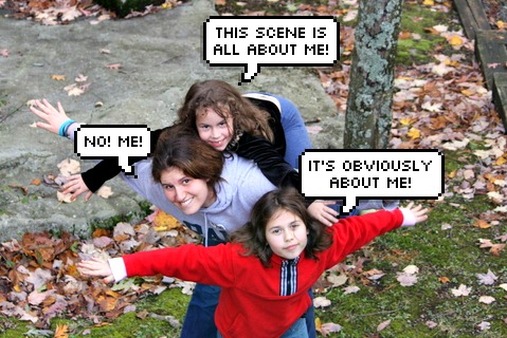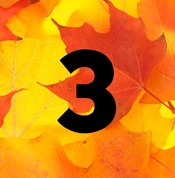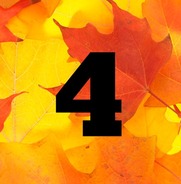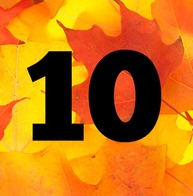
I am taking a brief blogging break for the Thanksgiving holiday. I hoping to be on the Internet less and writing more. Happy Thanksgiving!
 Thanks to author Jacqueline Jules for including my Pandemic-inspired writing prompts on her Pencil Tips blog. Check them out here. I am taking a brief blogging break for the Thanksgiving holiday. I hoping to be on the Internet less and writing more. Happy Thanksgiving! There are a few days left to enter Figment's Mythical World Contest. Entries of 500 words or less are due at the Figment website by the end of day, November 21. Read complete contest rules and guidelines here. Good luck!
Jim Collins studies leadership and corporate success and he's written numerous business books such as Good to Great, Built to Last, and Great by Choice. One of his concepts is that when undertaking a long (and perhaps difficult) journey, the best approach is to march twenty miles a day regardless of the weather and other conditions. Consistent progress toward a goal is better than long but undependable marches with rests in between. He uses the South Pole expedition leaders Roald Amundsen (who succeeded) and Robert Falcon Scott (who died during the expedition) to illustrate this. (Check this business article for more information about the twenty mile march.)
Now think about writing a novel. Is it better to write many pages on the weekend, skip a few days, and write another large chunk when time permits? Or is it better to write a page every single day? What do you think? School and work may affect the answer to this. Is consistent advancement toward writing goals a key to success? A brief tip to keep in mind as you write: it's important that you create obstacles for your characters to overcome. Don't make important problems too easy to solve. Nabokov's quote (above) gets at the heart of this concept. Besides making the story more interesting, creating obstacles also helps the reader to root for your characters.
What obstacles are your characters currently facing? How can you make the fictional situation worse? Disclaimer: "throw rocks" is not meant literally. No kittens were harmed in the writing of this blog post. Writers spend a lot of time focusing on the main character (MC), particularly if the story is written in first person. But what about the secondary characters? The best friend? The older sister?  Sometimes when a scene with multiple characters isn't working, it can be helpful to think about the action from another character's point of view. If the MC is arguing with her best friend at lunch, you may have a good handle on the MC's emotions and the events that led up to the argument. But what about the BFF? She can't be manipulated to say what you need for the plot to move forward. She should be a believable character with her own set of emotions and actions. What if she was telling the story? What happened during her morning that might be contributing to the argument? What is she feeling about the MC? You wouldn't necessarily add all of this background (and probably shouldn't, in most cases), but working on the supporting characters can help a scene-gone-wrong.  A resource to explore is author Jacqueline Jules' website, Pencil Tips: Writing Workshop Strategies from Children's Authors and Illustrators. She includes a section dedicated to magazines and contests that accept student work for consideration. If you're looking for places to submit, be sure to check it out. This Saturday (October 11th), I'll be a participating author at the Collingswood Book Festival speaking on a panel about Developing Characters in Realistic Fiction, working with teen writers during the Young Writers Workshop, and signing books. If you live in the area, come say hello. Because I missed a Friday Five post last week, and because I've been thinking about character development for the upcoming panel, I thought I would share ten resource links that provide exercises and checklists for developing characters.  Character Development Exercises from author Sandra Miller’s website Sample: “Your protagonist and antagonist each write a letter to a friend or family member (or you!) about the other.”  Character Exercises from The Script Lab Sample: “Write a monologue (1 page) that accurately portrays your character. What is he/she feeling at that moment? What is his/her hopes? His/her fears? What does he/she love? Hate?”  Character Exercises from Writing Exercises Sample: “Write ten 'factual' statements about your character, then ten lies, then ten odd/bizarre statements.” This site also includes a random character generator you can use as a starting point as well as generators of random dialogue, scenarios, town names, character traits, jobs, etc.  Take Your Characters Out to Lunch: 5 Development Exercises from Lit Reactor Sample: “…create a Pinterest board for your character by selecting images they might be drawn to.”  Create-A-Character Exercises from The Writer’s Craft website Sample: “Collect mannerisms…. Pick an emotion and for the next few days, track it in the people that you see….How do different people show that they are bored; how do they disguise it?”  Building Character: A Checklist from Nieman Storyboard Sample: “Ambitions,” “Most important thing to know about this character,” and “What trait will make this character come alive, and why?”  Larry Brooks Character Checklist from Procrastinating Writers Sample: “Is the character a giver or a taker in life?” “What lessons has the character not learned yet in life?” “What is the worst thing the character has ever done?”  Character Creation Checklist from My Writing Journey Sample: “Do they have anything about their appearance that they try to hide or disguise?” “How do they dress?” “How do they move?”  90 Things To Know About Your Characters Before Writing from Writing and Illustrating Sample: “Does your character collect anything?” “What annoys them?” “What makes them laugh?”  Getting to the Core of Your Characters by C.S. Lakin from Live, Write, Thrive This isn't a checklist, but an explanation of three things to ask to understand your character: “Their core need (and what they would do if they couldn’t get that need met,” “their greatest fear,” and “the incident(s) that wounded them early in life that got them believing a lie.” Visit Lakin's website to learn more. I hope you find these resources useful in developing your fictional characters. Please add other related links or your own insights in the comments. Happy Writing!
In case you are new to my blog, this week's Teen Tuesday post is a summary of some ongoing contests and market profiles that I've listed previously. ContestsMarkets
Giveaway WinnerA winner has been randomly selected for the Emergency Preparedness giveaway. There is a 48 hour period for the winner to respond. Once I hear back, I'll announce it. Happy October! By Yvonne Ventresca  The Gulen Institute sponsors an annual essay contest for students in grades nine through twelve, worldwide. According to the website, "The contest challenges young minds to identify the obstacles to stable peace and social harmony and to offer possible solutions from their own cultural perspectives." This year's theme is global poverty. Cash prizes and sponosred trips to Washington, DC are awarded to the top thirty winners, with first place receiving $2000. Sample prompt: Discuss some innovative practices that have been particularly effective in reducing or eliminating poverty in some regions. Do they show any promise as a model for implementation elsewhere? Are they promising on a global scale?" -- Gulen Institute Youth Platform essay contest, 2015 Essays (written in English) must be between 1500 and 2000 words and are due December 15, 2014. See the contest website for the six writing prompts and complete guidelines. Good luck! Disclaimer: Word Pop blog is not associated with the running or judging of this contest. Please verify all rules, details, and guidelines on the contest website.
 The Louisville Review publishes poetry from kids in kindergarten through seniors in high school. From the website: "We seek writing that looks for fresh ways to recreate scenes and feelings. Honest emotion and original imagery are more important to a poem than rhyming and big topics--such as life, moralizing, and other abstractions." They pay in copies. You can read the complete guidelines here. Adults: They publish poetry and prose people over eighteen, too! See the submission guidelines here. Happy Writing! |
JOIN NOW!
Sign up for Yvonne's newsletter for exclusive content, book news, and other occasional author goodies. Archives
June 2025
Categories
All
|